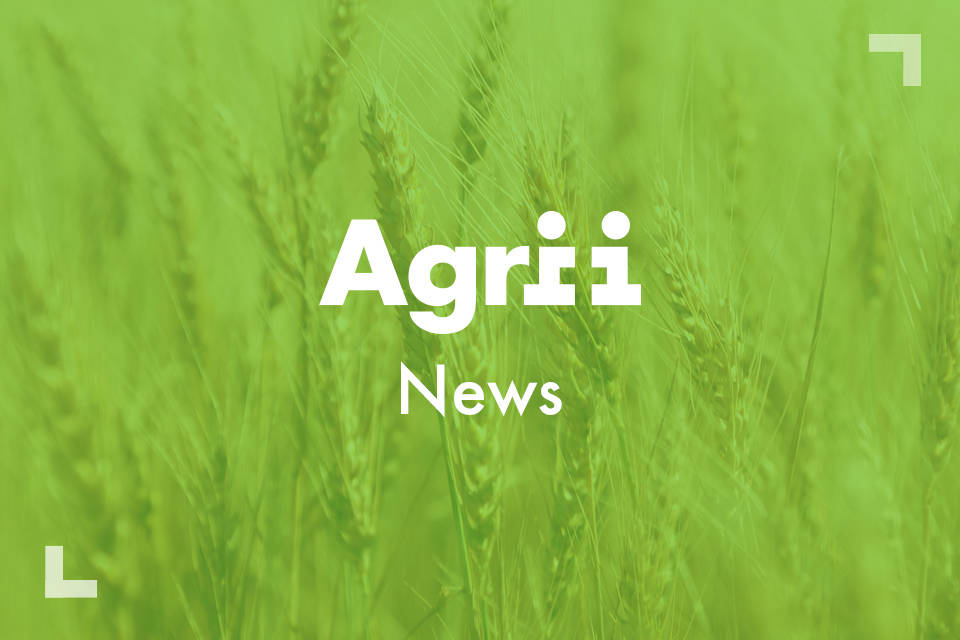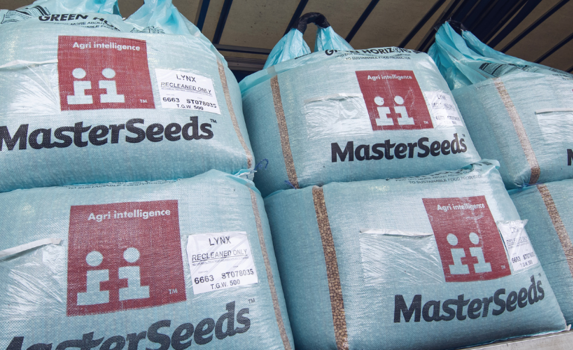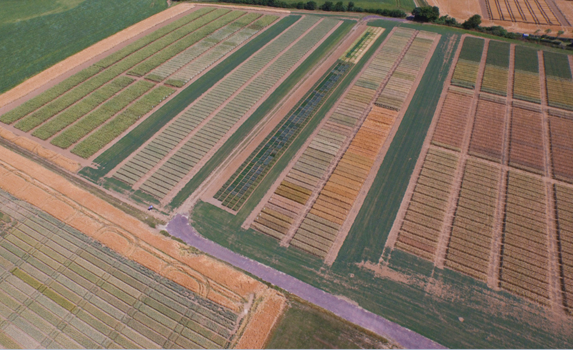
Seed Select: Unearthing Top Varieties for Autumn
News - 12.12.23
Agrii Tramlines Podcast | Season 3, Episode 17
Agriculture is changing bringing new opportunities for growers.
Below is a summarised transcript for our recent Tramlines Podcast episode talking about about the key varieties on the Recommended List for growers in Autumn.
The team also discuss R&D work we do to create the Agrii Advisory List. This information not only works in conjunction with the RL but plugs some very important gaps for growers looking for the optimal agronomic package beyond simply yield performance.
What are the right choices for growers this season and how will they fit into the portfolio and rotations?
Your Agrii Team

Rodger Shirreff
National Seed Business Manager

John Miles
Seed Technical Manager

David Leaper
Oliseed Rape Technical Manager
What is the value of the recommended list for growers and how do Agrii trials fit in with the trials data on the RL?
[Rodger]
The value to me is the gross output potential of a crop to a grower versus the risk of growing that crop. The list is good at identifying nationally the potential of varieties.
As Agrii, we look to qualify that ourselves with an early look at these varieties so that we can have our own independent results to back up what is recommended.
[John]
We run our own sets of variety trials, they do differ slightly in terms of being on farm with farm inputs. That does tend to give you a regional skew depending on the disease that's most prevalent and whether the program on the farm has been strong enough to do it.
So RL yields, but on a slightly different input regime. We need that high input regime because we're trying to push these varieties to find out the ones that are ultimately the very best. And if you don't set a very high bar, lots of stuff will creep in underneath it.
So, I've always defended the RL in terms of that ultimate aim, and making sure that there are a smaller number of high-quality varieties that growers can choose from.
With our own Agrii Advisory List, we supplement the RL. We've never wanted to try and replace it, but we do different trials.
We do specific lodging trials looking at various inputs and seed rates and the combination that plays out. And probably the jewel in the crown has been the blackgrass competition work that we've spoken about on many podcasts.
[David]
The recommended list produces some really good benchmarking information about variety performance and all of the characteristics that we've come to contrast and compare varieties on.
But there are some gaps, and the biggest gap we've had over the last 5 years is key information on growth habit and how these varieties can cope with the burden of both adult and larval damage from flea beetle and winter stem weevil.
We've done a lot of work looking at sites where there's damage and trying to identify what characteristics might help. It's not about gross output, it’s about ‘is the variety going to survive’ and get through the punishing levels of larval damage that we're currently seeing.
We've looked at late season STEM health, because some of the leading varieties in the UK have died off prematurely and look terrible, and that impacts on late season pod fill.
Having an ability to cope with some of the late season diseases like Verticillium are very useful. And we've been looking at that for the last few years, and it's only now that the AHDB are turning their attention to late season disease.
What key Winter Wheat varieties would you pick out in addition to those that the RL would be highlighting.
[Rodger]
KWS Dawson was the was one of the star performers that we had from last year. The limiting factor with Dawson was the amount of seed that was available. There was a very big interest in the crop. It turned out to deliver the goods at harvest time for growers.
So, it indeed proved itself as a worthwhile variety.
And looking at Champion, which is a very useful variety, but there are risks. One of the risks of Champion from a gross output point of view for the grower is its standing ability.
[John]
Our attitude to lodging risk is quite strong, and we just had that question mark over Champion. There’s no dispute to its yield potential, but also what has continued its strong performances is incredibly strong septoria resistance and where we've had those challenges, then the variety comes through.
If you're aware of a potential Achilles heel you can adjust around it. So, it wasn't a completely safe package, but there's a lot of positive points around Champion.
KWS Extase has also done well. We took a position on Oxford, which is a sister variety to Champion, gives a little percent or so away in yield, but does have better standing ability and better grain quality. It's perhaps more suited to the Eastern side of the country where we could not be needing to have such a strong sectorial score.
Last year harvest results wise, some of the golden oldies, some of the tried and tested varieties also shone very well.
I think the key thing for me is there is a lot of varieties out there. There's a lot of old stuff that had we lost Tebuconazole would have probably disappeared, but actually performed well.
There were good new varieties in the last few years, and now we've just had the release of a new RL with some good varieties on there. The question is where do they fit for us and also importantly for a farmer?
[Rodger]
GROUP 1 HARD
SY Cheer didn't make it onto the list because of its outright yield, because it's not the highest yield within that group, but we have a requirement for Group 1 wheats for quality in the UK.
One of the strengths over and above Skyfall and KWS Zyatt is its better resistance to yellow rust, something that farmers have been concerned about within Group 1’s, and its accumulation of protein compared to Skyfall is excellent as well.
It's not just about yield within the Group 1, it's about the quality. It's about the disease resistance and the end market indeed that pulls that variety through because remember, it's not just the varieties on agronomics that give it a place. It's the end use of a variety.
GROUP 3 SOFT,
Bamford topped Agrii trials across all varieties. Positive for distilling and in the North, with a yield above Skyscraper, certainly places it very, very well to take quite a market share going forward.
GROUP 4 SOFT
Blackstone is from the same breeders as the Bamford, which is Elsoms. It’s a great option for the North.
If we take Redwald out of the equation due to its agronomic high risk, then Blackstone is our second highest yielding soft wheat in untreated and treated Agrii trials, with the best specific weight of any Group 4 Soft Wheats. The disease scores in our trials align with the RL.
It has the stiffest straw of any soft wheat and is the only variety and has a bushel weight above 78kg.
[John]
I think the thing is it's always about which gap are you needing to fill at whichever time and wherever in the country. You know everybody has their own unique balance of disease pressures, even things like Extase, they're still generally speaking, 0.9t/ha response. I think largely some of that will come from early yellow rust and late brown rust.
If you look at some of the varieties that may have crept on in the last few years but have had 0 or very little impact on the market. They may have a significant disease weakness or a significant agronomic weakness such as lodging.
I think where Beowulf as a Hard 4, or Blackstone as a Soft feed or Bamford, you look across those and you're very hard pressed to find anything that's significantly worrying about any of the traits in those varieties. Not only are they coming in with a very high yield, but they're very solid packages all around.
[David]
One thing we look at closely is the difference between treated and untreated yield and that gives us, whether it's got a good rating in one disease or another, an indication of the resilience of that variety to a particular disease.
Last year we saw the dominance of yellow rust in the crop this year, septoria. Over the years, we see varieties with different levels of disease resilience and, of course, other varieties which are inherently good on things like septoria and yellow rust, may fall down for brown rust because of the parentage within many of the varieties.
Disease resilience is important. We look at the response that a fungicide treatment has, and in most instances the yield loss disease from a reasonable fungicide program justifies that program in almost every instance.

Agrii Autumn Seeds Year Book
Get GrowingKey varieties to look at on the Agrii Advisory List and RL.
Winter Barley:
[John]
In the last few years, KWS Tardis has dominated. It's proven well on farm and in trials again this this last year.
The mover and shaker last year was LG Caravelle.
It's raising the bar by a number of percent. It's also got better grain quality, good disease and adds some real competition. So Caravelle, not as stiff as Tardis, but not a problem.
It's similar genetics from the same breeder with LG Capital, that got recommended this autumn. On the RL data, there is very little between them, but in our trials we are seeing bigger differences.
LG Caravelle has better mildew, better brown rust, better net broach. For rhyncosporium, they're quite similar. But in our trials, there's a 5% untreated yield difference across the variety trials.
LG Capital will be of interest, but its biggest challenge is that LG Caravelle to us looks a better all around variety and is in the market sooner.
Buzzard would be one to watch if you're looking for BYDV tolerance. Although LG Capital is new to the list this year, we don't see enough in our trials that we would want to move established sales from LG Caravelle as one of their highest yielding, most reliable winter barley options.
What Oilseed Rape
[David]
Limagrain have dominated over the last 5 or 6 years, and they've been incredibly successful because they've introgressed a number of traits
Focussing on;
- Turnip yellow's virus which is delivering higher yields
- Pod shatter resistance
- RLM 7 phoma resistance,
and they've been stacking these traits, producing very consistent, reliable varieties and achieving significant market share.
Our success over the last number of years has been with varieties like Ambassador and more recently Auckland.
This year there are 3 varieties that have come on, Armada, Academic, and Adeline. These are taking the varieties forward with better Verticillium, better late season light leaf spot resistance, and that's nudging up yields.
We took the decision 3 years ago to introduce Auckland, and that sits really well on the recommended list and has many of these traits.
Some older varieties are still performing well like DK Exteel and InVig 1035.
Turing is a non-turnip yellow virus resistant variety, but has been really consistent in terms of its overall disease resistance and yield performance.
RGT Kanzzas was a candidate that didn't get onto the recommended list, But we had identified that. It had a really vigorous growth habit in the spring that helped offset the effects of larval damage. So whilst that hasn't got recommended, we're sticking with it.
In terms of seed availability, what's in the ground ready for seed in the approaching season?
Winter Wheat
[Rodger]
Skyfall is still the biggest seller that we have within group ones. Farmers know the risk, but the extended drilling window because of the need for less fertilisation with Skyfall.
We have increased our hectare of Bamford considerably in anticipation of it being on the RL and going forward as a popular variety.
Some of the older varieties are still big players with us.
Dawson remains a popular option.
Champion hectarege because of demand from growers justified by impressive yield results, with the caveat that you must be aware of the weaknesses that it has.
We sell more Graham in the marketplace than is proportional to the rest of the trade because we, as Agrii, feel that we still understand Graham as a variety within Group 4 and its place.
As of yet we don't have a replacement for an early drilled wheat, which is a slot that Graham fills very well for us and our growers.
Winter barley
[John]
It's predominantly Tardis and LG Caravelle.
We've had our own Memento from the Secobra program that served us well for many years and the USP for that was big bold grain. The Blackgrass competition trials this year we did think that LG Caravelle was proving a little bit more interesting.
This year's results conclude that it's still in the pack in terms of 2 rows.
But if you want to optimise your blackgrass competition, then it's got be a hybrid to affect that seed head number and the seed return based on the size of that seed head.
Kingsbarn is still a very strong variety.
We have Armadillo, a variety that didn't make it onto the RL, but had unique brackling or lack of brackling and that's done well on farm, and Belfry is still quite a strong, long standing servant as being the stiffest of the hybrids.
OSR
[David]
The one interesting thing we've found is that there's been as much interest in schemes that help farmers offset the risk of establishment, and that's driven variety choice probably more so than new varieties.
We anticipate this autumn that Ambassador, Auckland, DK Exteel, and InVig1035 will remain big sellers.
And those varieties we introduced last year, like Turing with very good disease resistance, and Kansas with its spring growth habit will take up some new acreage, and that will probably remain our focus.
Our biggest conventional sellers are Aardvark, and Amarone with a focus on growth habit.
It's interesting to see Pinnacle coming from an independent plant breeder as a new conventional variety, and then Miraculix to complement Matrix, which has become the mainstay of the Clearfield acreage.
How growers can use the RL and AGRII Advisory List to help nurture the crops through the growing season.
[John]
You need to think about what are the characteristics or things that you really aren't prepared to budge on. Thinking about different areas of the farm, the rotation, or because of different regions, so ask yourself, what's your top 4 things you want?
By the time we've gone through that wish list, we may only have one or two options left.
But we've got some great genetics available to us. There's a range of different traits you could really specialise in, if you could be really strong in your list of demands and still end up with a load of good characteristics and good varieties to offer.
[David]
Don't go to the left hand side of the list just because it's higher yielding, that can be a misguided judgment. Often the best varieties are sitting in the middle of the pack, and they're supported with much broader characteristics, and a much higher variety sustainability rating and agronomic package, that will deliver longer term.

Agrii Variety Sustainability Ratings
Learn about the VSR and how it can help you make sustainable variety choices for the upcoming season.
Learn MoreJoin Our Community

Agrii X
We love engaging with clients and partners. Give us a follow and let's share stories for the community.

Agrii Instagram
A picture paints a thousand words. Follow us on Instagram to see what we are up to.

Agrii Facebook
Follow us on the worlds biggest social media site for the latest news and events straight to your feed.

Agrii LinkedIn
If you are all about the business, connect with us on LinkedIn to build your network
Stay In Touch

Newsletter Sign-Up
Receive email updates on topical news and information from around Agrii and UK Farming.

Listen To Our Podcasts
Listen to the Tramlines Podcast. Fortnightly chat about agriculture and trials with your host Tony Smith.

Agrii Insights
Read essential agri intelligence for profitable farming.

Find an Event
Join us for our upcoming events and tours.



